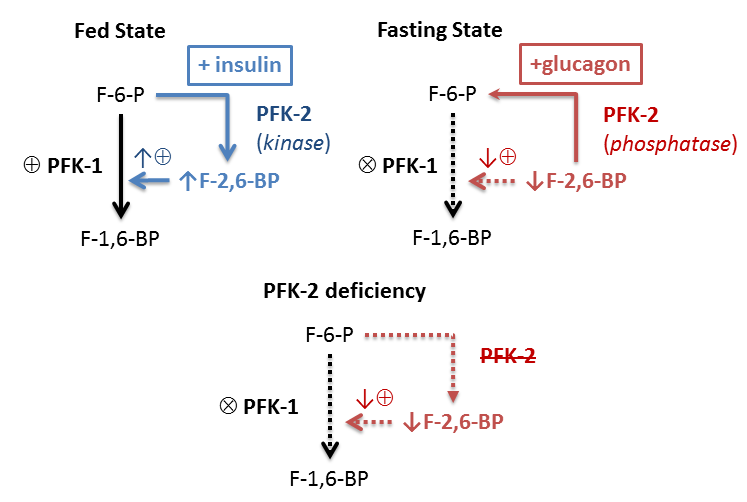- Joined
- Nov 26, 2013
- Messages
- 1,349
- Reaction score
- 193
So this is one of the questions from Kaplan asking:
A congenital deficiency in the enzyme phosphofructokinase-2 (PFK-2) would most likely impair which of the following processes?
The correct answer: Regulation of phosphofructokinase-1 (PFK-1) by insulin
(Other answer choices did not make any sense.)
I checked both FA and Kaplan biochem and PFK-1 is not regulated by insulin, so I don't get this.
If there is a defect in the enzyme PFK-2, it won't make F2,6BP that can stimulate PFK-1 to convert F6P to F1,6BP. That's really the only thing I can think of as an outcome of the PFK-2 defect.
Can anyone help me? Many thanks in advance.
A congenital deficiency in the enzyme phosphofructokinase-2 (PFK-2) would most likely impair which of the following processes?
The correct answer: Regulation of phosphofructokinase-1 (PFK-1) by insulin
(Other answer choices did not make any sense.)
I checked both FA and Kaplan biochem and PFK-1 is not regulated by insulin, so I don't get this.
If there is a defect in the enzyme PFK-2, it won't make F2,6BP that can stimulate PFK-1 to convert F6P to F1,6BP. That's really the only thing I can think of as an outcome of the PFK-2 defect.
Can anyone help me? Many thanks in advance.

